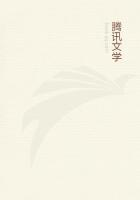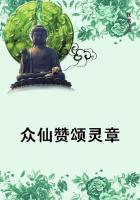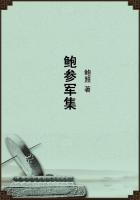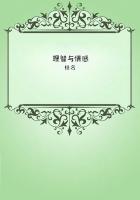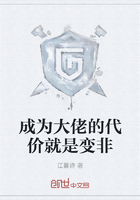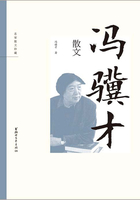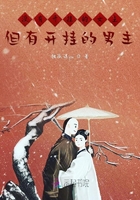Along with this deadly gloom of outlook, we must take another characteristic of his work: its unrivalled insincerity. I can give no better similitude of this quality than I have given already: that he comes up with a whine, and runs away with a whoop and his finger to his nose. His pathos is that of a professional mendicant who should happen to be a man of genius; his levity that of a bitter street arab, full of bread. On a first reading, the pathetic passages preoccupy the reader, and he is cheated out of an alms in the shape of sympathy. But when the thing is studied the illusion fades away: in the transitions, above all, we can detect the evil, ironical temper of the man; and instead of a flighty work, where many crude but genuine feelings tumble together for the mastery as in the lists of tournament, we are tempted to think of the LARGE TESTAMENT as of one long-drawn epical grimace, pulled by a merry-andrew, who has found a certain despicable eminence over human respect and human affections by perching himself astride upon the gallows. Between these two views, at best, all temperate judgments will be found to fall; and rather, as I imagine, towards the last.
There were two things on which he felt with perfect and, in one case, even threatening sincerity.
The first of these was an undisguised envy of those richer than himself. He was for ever drawing a parallel, already exemplified from his own words, between the happy life of the well-to-do and the miseries of the poor. Burns, too proud and honest not to work, continued through all reverses to sing of poverty with a light, defiant note. Beranger waited till he was himself beyond the reach of want, before writing the OLD VAGABOND or JACQUES. Samuel Johnson, although he was very sorry to be poor, "was a great arguer for the advantages of poverty" in his ill days. Thus it is that brave men carry their crosses, and smile with the fox burrowing in their vitals. But Villon, who had not the courage to be poor with honesty, now whiningly implores our sympathy, now shows his teeth upon the dung-heap with an ugly snarl. He envies bitterly, envies passionately. Poverty, he protests, drives men to steal, as hunger makes the wolf sally from the forest.
The poor, he goes on, will always have a carping word to say, or, if that outlet be denied, nourish rebellious thoughts.
It is a calumny on the noble army of the poor. Thousands in a small way of life, ay, and even in the smallest, go through life with tenfold as much honour and dignity and peace of mind, as the rich gluttons whose dainties and state-beds awakened Villon's covetous temper. And every morning's sun sees thousands who pass whistling to their toil. But Villon was the "mauvais pauvre" defined by Victor Hugo, and, in its English expression, so admirably stereotyped by Dickens. He was the first wicked sansculotte. He is the man of genius with the moleskin cap. He is mighty pathetic and beseeching here in the street, but I would not go down a dark road with him for a large consideration.
The second of the points on which he was genuine and emphatic was common to the middle ages; a deep and somewhat snivelling conviction of the transitory nature of this life and the pity and horror of death. Old age and the grave, with some dark and yet half-sceptical terror of an after-world - these were ideas that clung about his bones like a disease. An old ape, as he says, may play all the tricks in its repertory, and none of them will tickle an audience into good humour.
"Tousjours vieil synge est desplaisant." It is not the old jester who receives most recognition at a tavern party, but the young fellow, fresh and handsome, who knows the new slang, and carries off his vice with a certain air. Of this, as a tavern jester himself, he would be pointedly conscious.
As for the women with whom he was best acquainted, his reflections on their old age, in all their harrowing pathos, shall remain in the original for me. Horace has disgraced himself to something the same tune; but what Horace throws out with an ill-favoured laugh, Villon dwells on with an almost maudlin whimper.
It is in death that he finds his truest inspiration in the swift and sorrowful change that overtakes beauty; in the strange revolution by which great fortunes and renowns are diminished to a handful of churchyard dust; and in the utter passing away of what was once lovable and mighty. It is in this that the mixed texture of his thought enables him to reach such poignant and terrible effects, and to enchance pity with ridicule, like a man cutting capers to a funeral march. It is in this, also, that he rises out of himself into the higher spheres of art. So, in the ballade by which he is best known, he rings the changes on names that once stood for beautiful and queenly women, and are now no more than letters and a legend. "Where are the snows of yester year?" runs the burden. And so, in another not so famous, he passes in review the different degrees of bygone men, from the holy Apostles and the golden Emperor of the East, down to the heralds, pursuivants, and trumpeters, who also bore their part in the world's pageantries and ate greedily at great folks' tables: all this to the refrain of "So much carry the winds away!" Probably, there was some melancholy in his mind for a yet lower grade, and Montigny and Colin de Cayeux clattering their bones on Paris gibbet. Alas, and with so pitiful an experience of life, Villon can offer us nothing but terror and lamentation about death! No one has ever more skilfully communicated his own disenchantment; no one ever blown a more ear-piercing note of sadness. This unrepentant thief can attain neither to Christian confidence, nor to the spirit of the bright Greek saying, that whom the gods love die early. It is a poor heart, and a poorer age, that cannot accept the conditions of life with some heroic readiness.
The date of the LARGE TESTAMENT is the last date in the poet's biography. After having achieved that admirable and despicable performance, he disappears into the night from whence he came. How or when he died, whether decently in bed or trussed up to a gallows, remains a riddle for foolhardy commentators. It appears his health had suffered in the pit at Meun; he was thirty years of age and quite bald; with the notch in his under lip where Sermaise had struck him with the sword, and what wrinkles the reader may imagine. In default of portraits, this is all I have been able to piece together, and perhaps even the baldness should be taken as a figure of his destitution. A sinister dog, in all likelihood, but with a look in his eye, and the loose flexile mouth that goes with wit and an overweening sensual temperament. Certainly the sorriest figure on the rolls of fame.

